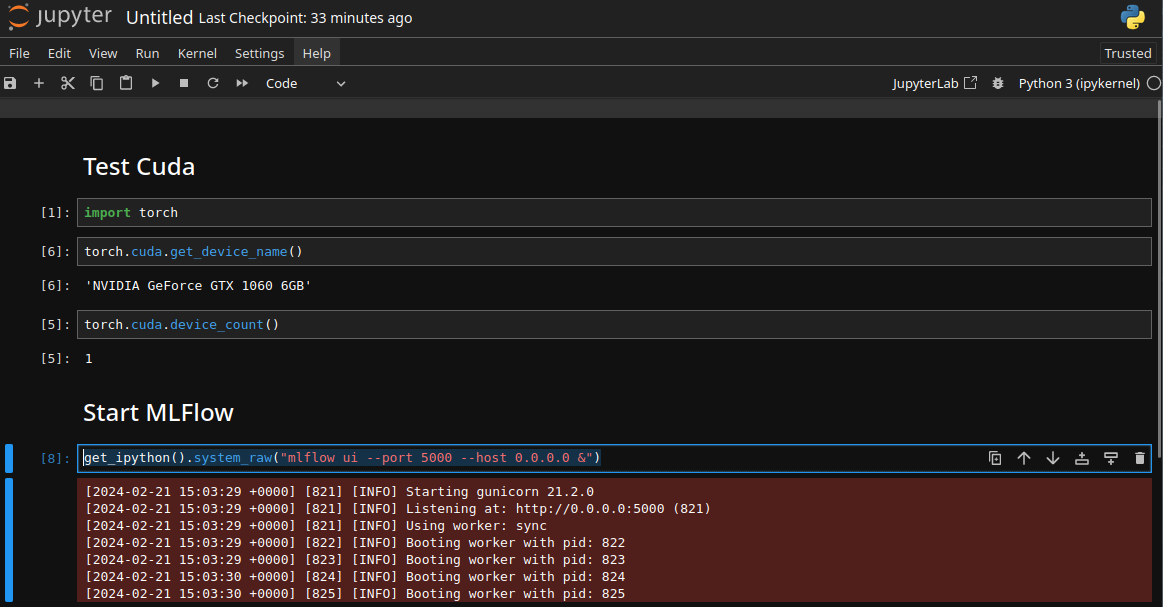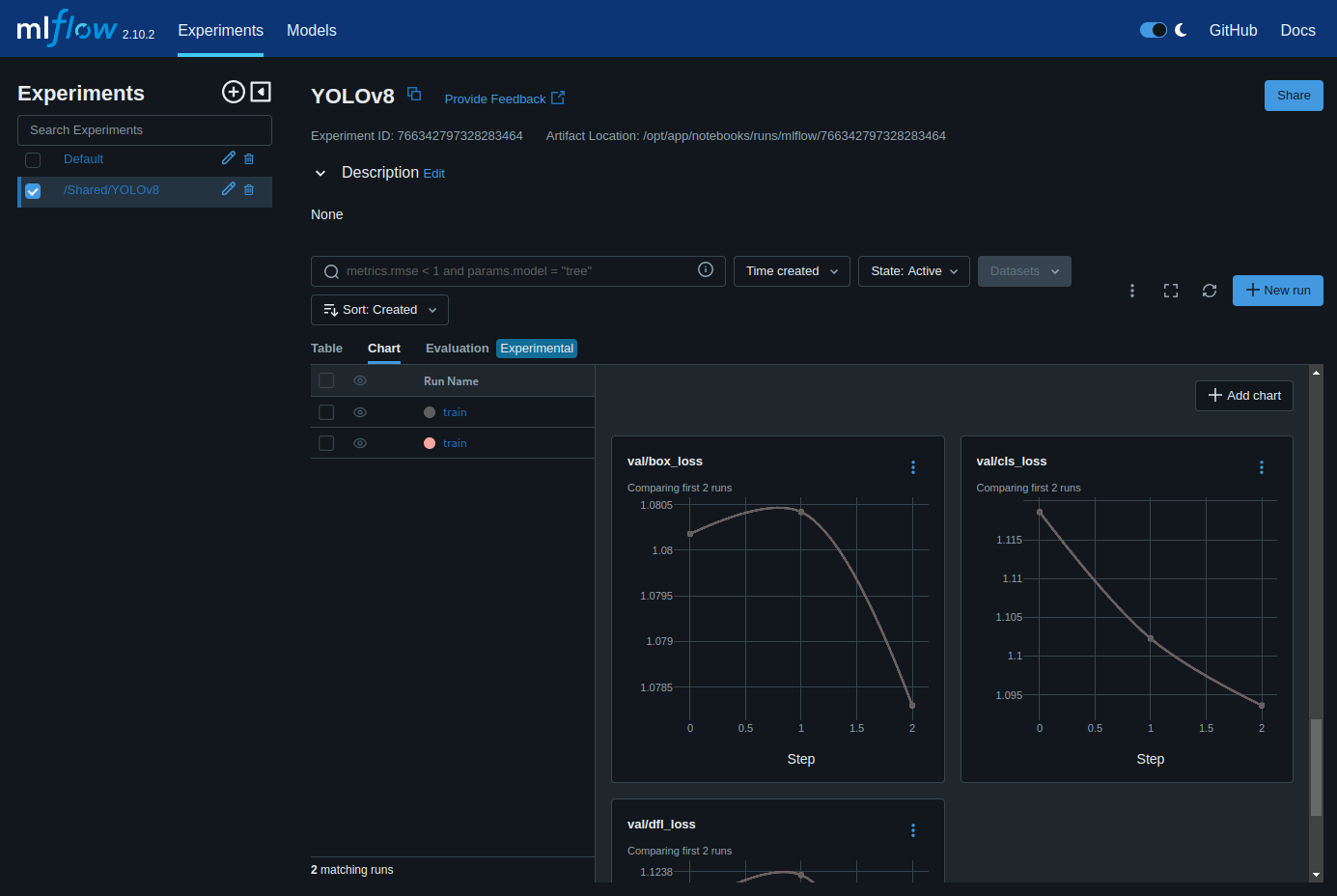
MLFlow Docker

This is just an experiment to see if I can use MLFlow inside my pytorch-jupyter Docker container with the latest version of YOLOv8.1. To do this I added MLFlow to the Dockerfile:
FROM pytorch/pytorch:latest
# Set environment variables
ENV DEBIAN_FRONTEND=noninteractive
# Install system dependencies
RUN apt-get update && \
apt-get install -y \
git \
tini \
python3-pip \
python3-dev \
python3-opencv \
libglib2.0-0
# intall optional python deps
RUN python -m pip install --upgrade pip
# jupyter notebooks
RUN pip install jupyter
# fastdup https://github.com/visual-layer/fastdup
RUN pip install fastdup
RUN pip install opencv-python
RUN pip install matplotlib matplotlib-inline pandas
RUN pip install pillow
RUN pip install pyyaml
# YOLO 8.1
RUN pip install ultralytics Cython>=0.29.32 lapx>=0.5.5
# MLFlow 2.10
RUN pip install mlflow pytorch_lightning
# Set the working directory
WORKDIR /opt/app
# Start the notebook
RUN chmod +x /usr/bin/tini
ENTRYPOINT ["/usr/bin/tini", "--"]
CMD ["jupyter", "notebook", "--port=8888", "--no-browser", "--ip=0.0.0.0", "--allow-root"]
Let's build this custom image with:
docker build -t pytorch-jupyter . -f Dockerfile
I can now create the container and mount my working directory into the container WORKDIR to get started:
docker run --ipc=host --gpus all -ti --rm \
-v $(pwd):/opt/app -p 8888:8888 -p 5000:5000 \
--name pytorch-jupyter \
pytorch-jupyter:latest
This will start Jupyter on Port 8888 and I can start MLFlow manually:
docker exec -ti pytorch-jupyter mlflow ui --host 0.0.0.0
The MLFlow is now available on localhost:5000 on my host system:

Just to be sure I stop MLFlow and try to run it directly from a Jupyter Notebook:
get_ipython().system_raw("mlflow ui --port 5000 --host 0.0.0.0 --backend-store-uri runs/mlflow &")
And the UI is still available on localhost:5000 - nice:

Create an MLFlow Experiment
Enable MLflow Logging
from ultralytics import settings
settings.update({
'mlflow': True,
'clearml': False,
'comet': False,
'dvc': False,
'hub': False,
'neptune': False,
'raytune': False,
'tensorboard': False,
'wandb': False
})
Model Training
from ultralytics import YOLO
# Load a pretrained YOLO model (recommended for training)
model = YOLO('yolov8n.pt')
# Train the model using the 'coco128.yaml' dataset for 3 epochs
results = model.train(data='coco128.yaml', epochs=3)
